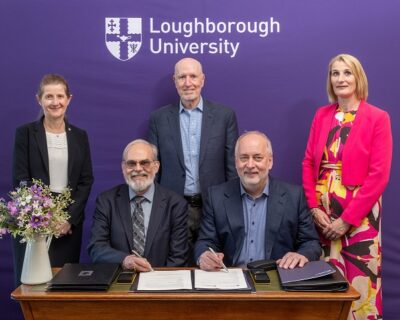An article by Professor Simon Green, chair of Midlands Innovation Executive Management Group and Pro-Vice-Chancellor for Research at Aston University.
The government has unveiled its highly anticipated levelling up white paper. While readers in search of ‘new money’ or ‘new announcements’ in the white paper are likely to have been disappointed overall, when it comes to R&D, the story is more positive.
The white paper describes the vital role that universities play alongside innovation catapults and knowledge transfer networks, in helping companies develop and commercialise cutting-edge products and services, boosting jobs, productivity, incomes and international competitiveness.
It follows that within the wide-ranging plans to level up the UK is a medium-term ‘mission’ to boost public investment in research and development (particularly outside the so-called ‘golden triangle’ in the South East) and to leverage private sector investment in R&D.
The levelling up white paper should be seen against the backdrop of a substantial uplift in Government spending on R&D in the latest spending review, and in amongst the detail of the white paper’s policy programme is welcome news of £100 million for three new Innovation Accelerators – one of which will be located in the West Midlands.
How should universities respond to this serious commitment to R&D?
“Universities ought to partner together to deliver impactful, applied research, at scale.”
Working at scale will be needed to transform the country’s productivity and deliver on some of the other ambitious missions set out in the white paper– like narrowing the healthy life expectancy gaps between local areas, as well as supporting wider aims like UK’s transition to Net Zero.
Universities are major players in their local and regional economies but alone can’t hope to achieve levelling up. In contrast, a place-based partnership of universities, which in turn have extensive networks with businesses across a variety of sectors, could do much more of the heavy lifting required.
This is happening in the Midlands, where pan-regional university research partnerships are flourishing, working across geographic boundaries and a variety of different devolution arrangements. Midlands Innovation, of which Aston University is a member, is a partnership of the eight most research-intensive universities in the region.
As the white paper suggests, the transition to Net Zero brings with it disruption, but also opportunity for the industrial heartlands. The Energy Research Accelerator, a partnership between the Midlands Innovation universities and the British Geological Survey is an excellent case study: by working together across the region over a sustained period of time, it has been able to leverage public and private funding to invest in 23 state-of-the-art facilities which are being used by university and industrial researchers to develop new energy innovations.
A new programme, HyDEX, supported by UKRI, brings together the university partners in the Energy Research Accelerator, with multinational businesses, SMEs and other partners, to accelerate innovation in hydrogen, build markets and the supply chain, and support the skills needed for the new hydrogen economy.
The potential for collaborations in other areas are being realised too, with Midlands Innovation Health, which brings together the health expertise and research power of partner universities, launching a major programme of work aiming to minimise future health inequalities and understand the complex impacts of the pandemic on communities. And a research agenda, ‘inclusive transformation’, is bringing together more than 8,000 social science researchers in the region to develop interdisciplinary projects that will inform the region’s economic and social response to the pandemic over the next decade.
How can regional research collaborations be better supported by the policy and funding environment?
- Sustainable place-based funding streams are needed, and these should incentivise collaboration, including across geographic boundaries. For the Midlands it will be important that research funding does not get ‘caught up’ in what is, in many ways, an artificial divide between east and west. It is helpful to see recognition in the white paper that innovation accelerators can draw in expertise outside of the region in which they are based.
- Funding decisions should be agile enough to keep pace with businesses which often work on quick turnaround times.
“Ensure that the different regions in England are not pitted against each other”
- Ensure that the different regions in England are not pitted against each other when it comes to distribution of research funding outside of the ‘golden triangle’. One-off, competitive ‘pots of money’ are limited in their usefulness.
- Support regions to develop new R&D strengths where there is high potential, rather than overly relying on heritage strengths which could lead to unnecessary pigeon-holing of regions and their possible contributions towards levelling up.
When it comes to research and innovation, universities have already begun to embrace the maxim of ‘as much collaboration as possible, and as much competition as necessary’, rather than the other way around. This is what will enable universities to be more than the sum of their parts, as we all address the challenges of levelling up.
This article first appeared in the Aston Angle, our thanks to Professor Green and Aston University for allowing its reproduction here.



